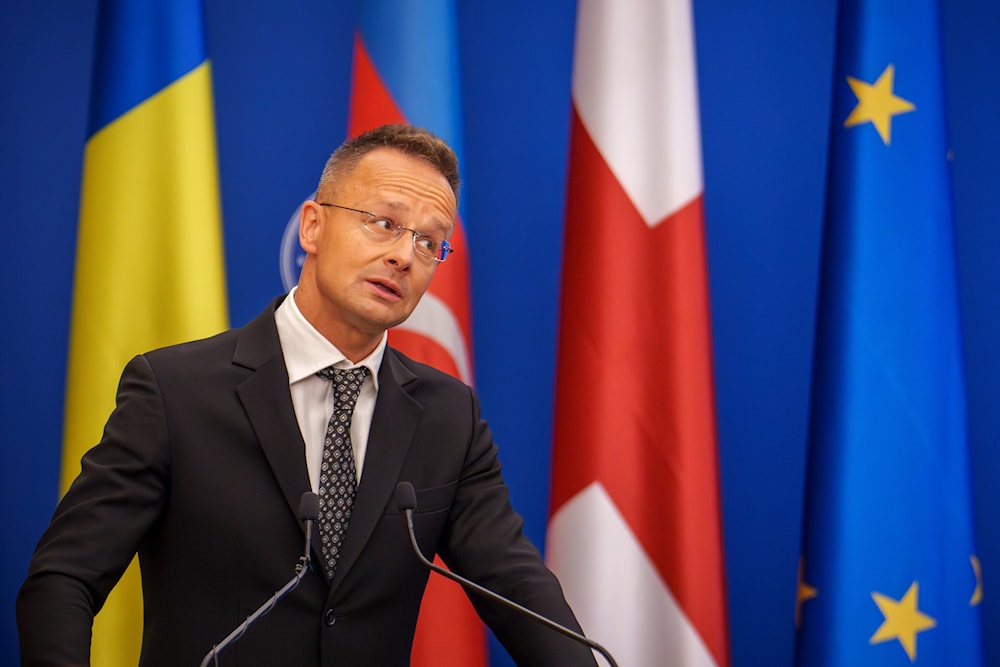All of Europe does business with Russia: Hungary
Hungarian Foreign Minister Peter Szijjarto states that economic cooperation between the EU and Moscow continues despite the sanctions.
-

Hungary's Foreign Minister Peter Szijjarto grimaces during a joint press conference in Bucharest, Romania, on September 3, 2024. (AP)
Hungarian Foreign Minister Peter Szijjarto has stated that many companies within the EU continue to quietly conduct business with Russia, despite the sanctions imposed by the bloc.
“Here I would like to disappoint the idealists, as the situation is that everyone in Europe is doing this,” Szijjarto said in Budapest on Friday.
"The difference between us and the others in general is that we speak honestly and openly about this issue. All of Europe does business with the Russians, but some deny this; we don’t need that,” he said.
Szijjarto added that although Hungary doesn't agree with the sanctions, it respects them as part of EU policy. However, he emphasized that Hungary often vetoes specific EU proposals when they significantly harm its national interests, with economic cooperation with Russia being one such priority.
The EU first imposed sanctions on Moscow in 2014, expanding them significantly after the escalation of the Ukraine war in 2022. These sanctions primarily target key sectors of the Russian economy, including energy, finance, and trade.
Hungary has long been at odds with the EU over its approach to the war in Ukraine and its sanctions policy towards Moscow. This ongoing disagreement complicates the EU's ability to reach consensus on new restrictions, according to an August report by Euractiv, which cited diplomatic sources.
Experts in Russia and the West have cautioned that unilateral sanctions could potentially inflict more damage on the countries implementing them than on Russia itself.
EU officials have also admitted that Moscow has been successful in circumventing the imposed restrictions. In June, data from the Russian Finance Ministry revealed that the country's budget revenues from oil and gas surged by 73.5% between January and May this year, compared to the same period in 2023.
More harm on EU than Russia
Western sanctions imposed on Russia have yielded results opposite their intended goal, Russian billionaire Alisher Usmanov said on August 24, 2024.
The metals tycoon highlighted that the sanctions, which were imposed since the start of the Russian-Ukraine war in February 2022, have caused more harm to the European Union than to Moscow.
"They wanted to harm the Russian economy, and here it is growing. They wanted to punish the business elite, and the Russians brought the money back home. The Russian economy is adapting to the sanctions, while neighboring markets are suffering. Europe rejects Russian energy resources and is forced to buy them at a much higher price," Usmanov told the newspaper.
Despite economic sanctions implemented by Ukraine's Western allies, Russia’s economy expanded by 3.6% last year while Germany underwent a recession. Additionally, France and Italy had recorded an economic growth of under 1%.
The sanctions imposed in September 2022 on the Nord Stream pipeline led to a significant drop in Russian gas supplies to the EU, resulting in the bloc purchasing US liquified natural gas (LNG) which is estimated to be 30-40% more expensive.

 3 Min Read
3 Min Read









